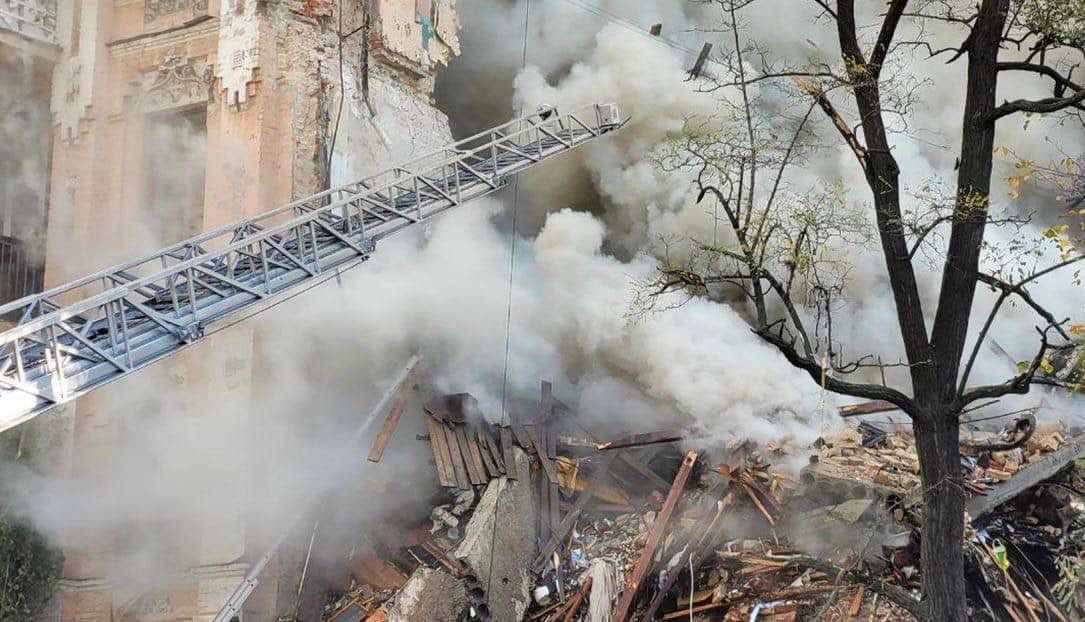The conflict between Ukraine and Russia continues to escalate, with the recent campaign of drone bombings on the Ukrainian capital of Kyiv signaling just the latest chapter of the war.
The drones, supplied to Russia by Iran, are more akin to guided missiles than planes. Shahed-136s, renamed Geran-2s by Moscow, have also been dubbed “kamikazes” for their use in hovering over an area before locking onto a target and striking.
The drone bombings underscore Iran’s role as a Russian ally, while Ukraine’s renewed appeals to the West for better anti-aircraft missiles stokes fears that the U.S. and its European allies could be drawn deeper into the conflict.
Kateryna Shynkaruk, senior lecturer at Texas A&M’s Bush School of Government and Public Service in Washington, D.C, joined the Texas Standard to talk about the latest stage of the conflict. Listen to the story above or read the transcript below.
This transcript has been edited lightly for clarity:
Texas Standard: Tell us a little bit more about these suicide drones and the timing behind them. Russia had been retreating and had suffered many battle losses in recent weeks. Then came these drone attacks. What do you make of it?
Kateryna Shynkaruk: Well, Russia has been preparing for massive attacks on Ukraine’s energy infrastructure since the summer. It has been waiting for the weather to become colder and then to attack Ukraine massively and to freeze people into submission. And so because it is running out of rockets, slowly but surely – it now has only 30% or even less of the number of rockets compared to February 24th – it has added these Iranian drones to its massive attacks on civilians across Ukraine.
Tell us a little bit more about the significance of Iran supplying these drones.
Well, obviously, Iran has been dismissing the fact that they have been supplying Russia with any weapons. But in fact, Russia has made agreements to purchase not only drones from Iran, but according to U.S. government intelligence, Iran has promised to also supply Russia with rockets – ballistic missiles, which just confirms your point, that this is a dangerous alliance we are seeing between Russia and Iran.
Could you say more about the intent to disrupt energy in Ukraine? I’m talking about Russia’s tactical move here. Going into the winter, what does this mean and how much damage is the energy infrastructure in Ukraine taking as a result of these new attacks?
Well, this is exactly the point behind these attacks – to cause blackouts across Ukraine, to damage energy infrastructure, to the point that Ukrainians will freeze. Basically, this is an attack primarily on civilian populations. Among the targets are power stations, power lines, heating plants. And according to Ukraine’s energy minister, Herman Halushchenko, it’s over 30% of Ukraine’s energy infrastructure that was hit a week ago, and these air strikes continued Monday [and] Tuesday.
Does this tilt the balance or alter the situation in Ukraine when it comes to the war itself? Does this give Russia now an edge in this war?
Well, in fact, this will not in any way affect the ability and the morale of the Ukraine armed forces to fight. But this is definitely a clear aggression on the civilians because the energy infrastructure units are located most frequently in residential areas. And when they are targeted, residential apartment buildings are targeted, so civilians get killed. The way it is done is actually meant to impose fear on people and impose discomfort to them. They basically use this as a terror tactic rather than something that would immediately provide them with a winning edge on the front line.















